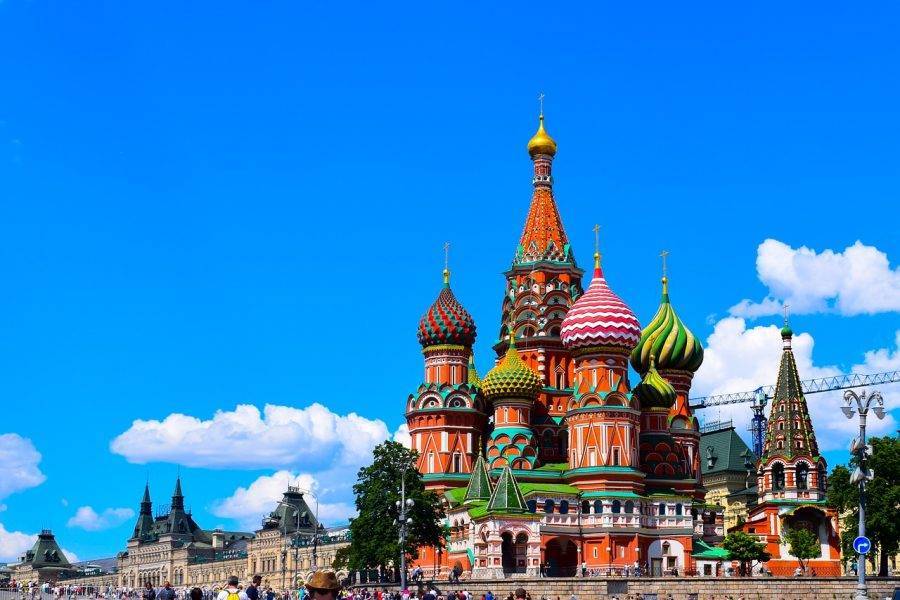Ten top tips for making it a success
The World Cup has provided a refreshing window on the world’s largest nation. Despite mounting geopolitical tensions and concerns that the rampant hooliganism of the 2016 UEFA Euros could mar the tournament, there has reportedly been less trouble among football fans than anticipated. In fact, The FIFA World Cup has the potential to put the country in the international spotlight, dismiss the notion of Russian isolationism and bureaucracy, and spur on an economic boost.
Some of the world’s biggest multi-national companies, many of them partners or sponsors of the tournament, have sent staff on assignment to the region and so far, feedback from the ground has largely been positive.
The success of this major event is expected to lead to an increase in investment from abroad and a rise in assignee numbers, as Russia remains an important part of many Western multinationals’ emerging markets portfolios.
So, has watching the World Cup made you more positive about working or setting up business in Russia one day?
Alyssa Bantle, cultural expert at Crown World Mobility, a company which helps corporations manage global talent provides her top tips on communicating and connecting in Russia.
“Small shifts can make a huge difference in your experience in Russia and help prevent the kind of social and cultural faux pas that we see so often.
“It’s important to understand that cultural background has a big influence on behaviour. Not just that of the people whose country you are visiting but also on your own behaviour too. We see this a lot in big business when people work abroad or attend meetings overseas. They make too many assumptions and don’t take the time and care to listen and understand other people – and often end up either causing offence or failing to communicate effectively.”
Communicating and Connecting in Russia: Top Tips
1. Do not expect to strike up a conversation as easily as you do in the UK. Small talk is not the norm in Russia. Russians usually need time to build trust.
2. Do not be offended if your friendly smile is not reciprocated. Russians tend to reserve smiling for people they know and trust or when it is a sincere reflection of how they are feeling.
3. When you do have a conversation with Russians be prepared for some personal and direct questions such as asking how much you earn or why you do not have children. These types of questions allow Russians to get to know who you are and build trust. You can answer – or you can use a more indirect reply like “I earn enough to take care of myself and my family.”
4. Another approach is to openly share that you prefer not to answer since the question is considered quite personal in your culture – but that you would love to have a conversation with them about other things.
5. Make sure you learn some basic phrases and greetings – both familiar/casual ones like “Poka” (bye/so long) and the more formal ones like “Do svidaniya” (goodbye/’til we meet again). You can download an app, buy a book or take a few lessons in person or online.
6. Use more formality than you would in the UK. In Russia, formality is a form of respect that is appreciated especially when interacting with strangers, officials and hotel staff. When in doubt, err on the side of formality. In other words, keep that funny comment to yourself when you are speaking with the Customs and Immigrations officer.
7. Before judging the way something is done in Russia in a negative light, stop and ask yourself what you might be missing. And then use your curiosity to learn about how or why something is done in a certain way. Ksenia Gross, Regional Coordinator at Crown, works closely with assignees from around the world. As a Russian national living in Hong Kong she advises: “In any intercultural interaction take a moment and try to see the whole picture. Embrace the things you don’t completely understand and be curious to ask questions. Respect the old ways of Russia. There is a lot to discover whether you are there for a matter of days, weeks or years”.
8. Remember to approach each interaction with curiosity. Dos and Don’ts are great but can only get you so far. There are cultural norms but each person and every interaction is unique.
9. If you are working in Russia, do not assume that your usual approach of brief chit-chat and then getting right down to business will be perceived as positively as it is in the UK. In Russia employees spend more time chatting and connecting with each other.
10. Do not ask a direct question assuming you will get a direct answer. In the Russian workplace, communication can often be quite indirect for many reasons including factors as hierarchy and seniority. Use your curiosity to ask more open-ended questions and get more information.
Finally, a few general suggestions help you make those small shifts, whatever your reason for visiting Russia:
• Stay curious: observe and ask questions.
• Know yourself: the more you know about your own cultural comfort zone the better you can stretch beyond it.
• Expect some mistakes and misunderstandings: it is part of the “journey”
• Assume positive intent: Russians you meet are also often unsure of what to make of the Brits!
Visit www.crownworldmobility.com for more information.

